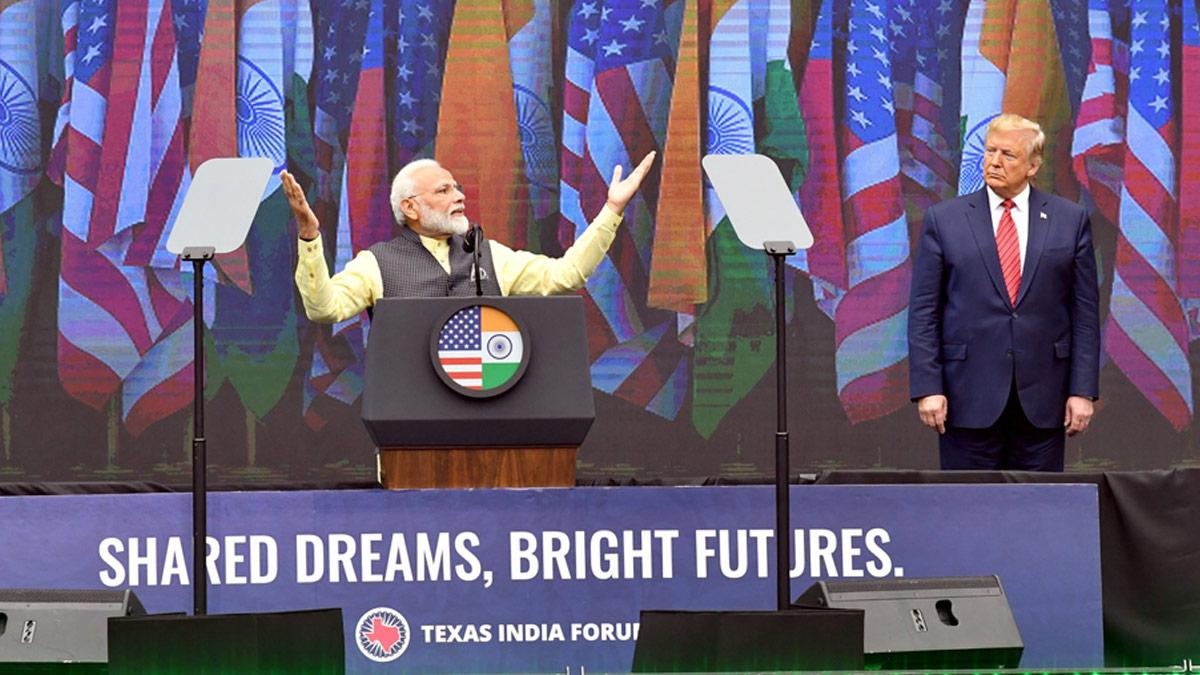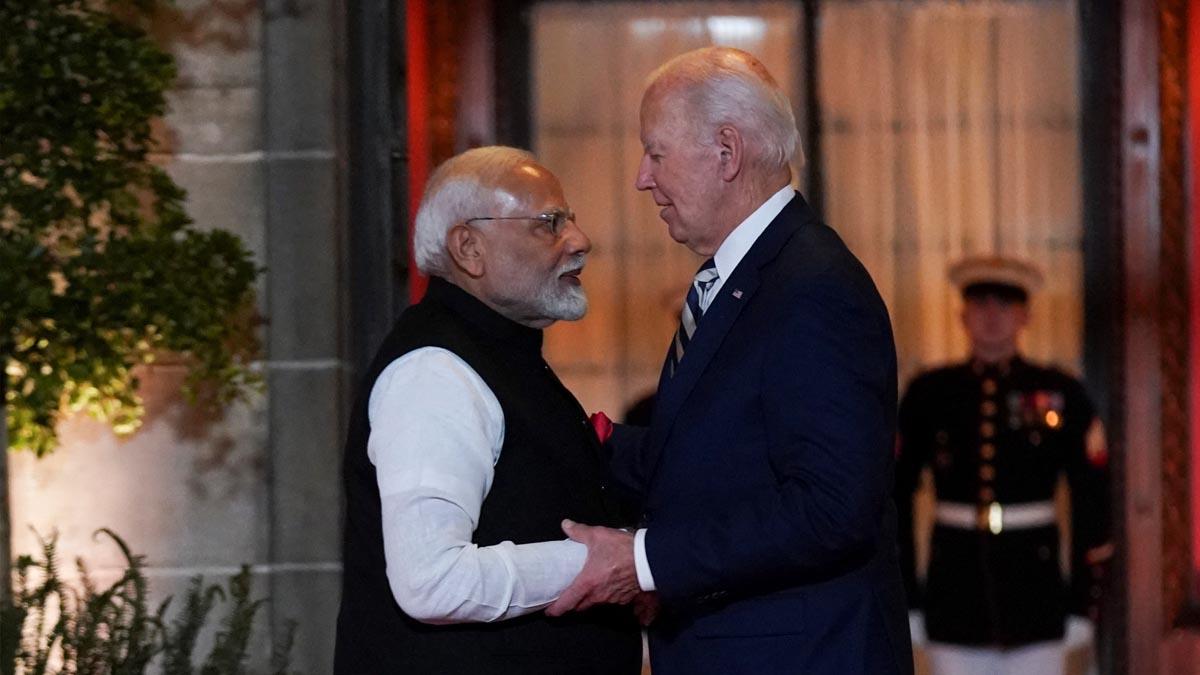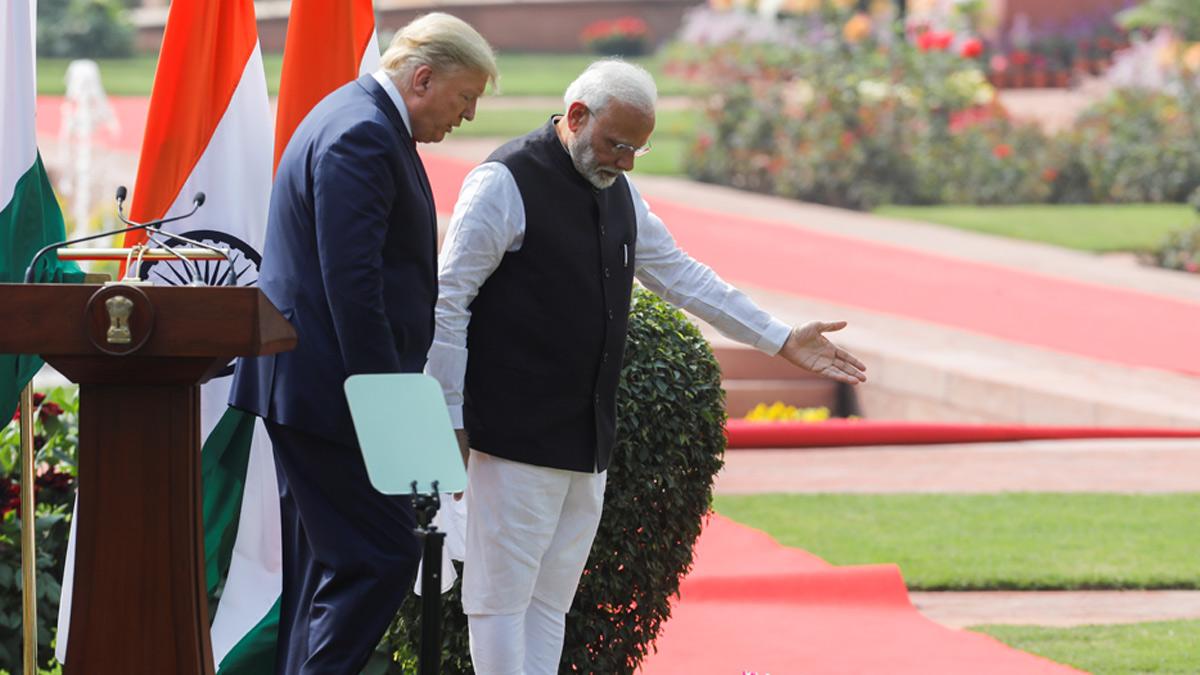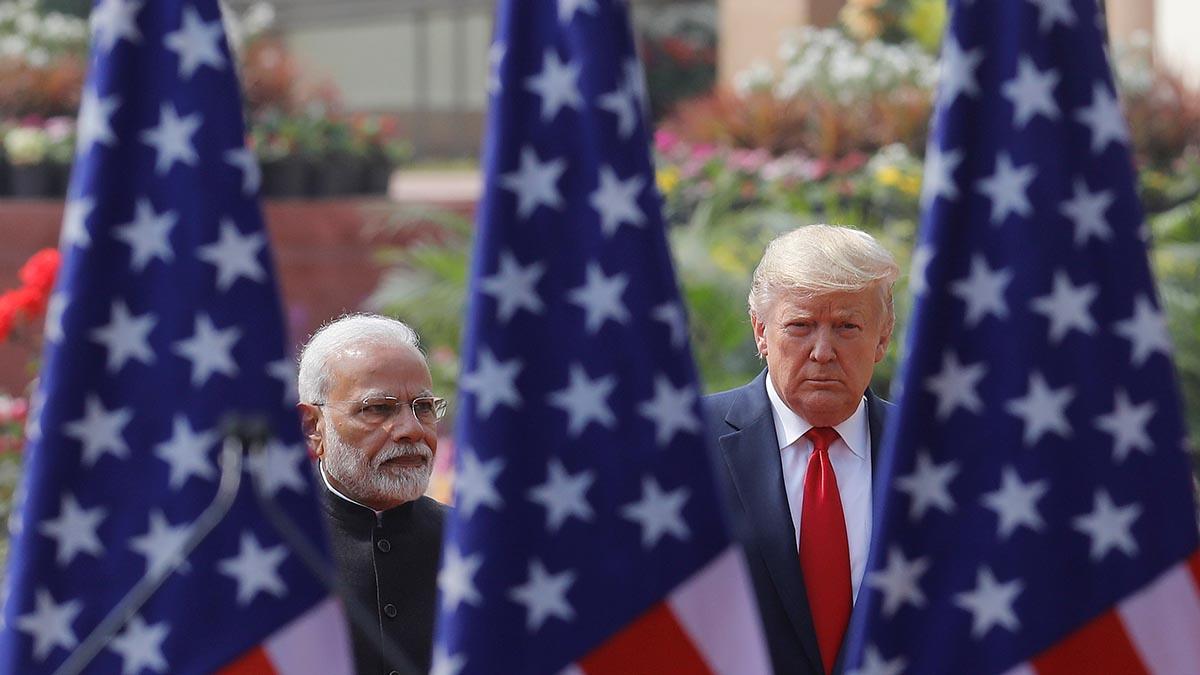'The border deal offers a hedge for India against Trump's unpredictability when it comes to his approach to competition with China.'

What shape will India-US relations take after President-elect Donald J Trump enters the White House on January 20, 2025?
Trump values the importance of personalities in international affairs and his personal equation with Prime Minister Narendra D Modi will be crucial in steering the course of IndIA-US ties in the next four years.
"His relatively restrained views on Russia, and his lack of interest in bringing attention to human rights concerns in India, mean that two of the relationship's biggest points of tension at the moment could recede," predicts Dr Michael Kugelman, Director of the South Asia Institute at the Wilson Center and a leading expert on India, Pakistan, Afghanistan and their relations with the United States.
"To be sure, Trump won't be all good for India," he, however, cautions. "Trade tensions may resurge; his campaign rhetoric suggested he won't shy away from a tough tariff policy. His administration's immigration and visa policies could deleteriously impact Indians," Kugelman says in an e-mail interview with Rediff.com's Archana Masih.

In a broad perspective, what will be the Trump world view in his second term as President? How different will it be from his first presidency?
It's risky to make predictions about Trump, because he's so unpredictable. But with that caveat, let's give it a go.
Based on what we've heard from him on the campaign trail and over the last few years, on many levels his approach to international affairs probably won't be dissimilar to what he focused on during his first term:
Drive a hard bargain on international trade, be tougher with allies and partners to ensure they do more on burden-sharing, and try to make America as strong as possible in the world, but with a footprint that's not as deep.
There are, of course, a number of questions. Will he actually stick with those approaches, or will he do about-faces?
Will he actually follow through on what appear to be pledges to help end the wars in the Middle East and Russia?
And perhaps most interesting -- and most significant, from New Delhi's perspective -- will he maintain Washington's bitter competition with Beijing, or will he look to reach an understanding with Chinese President Xi Jinping, a leader that's often garnered praise from Trump?

India-US relations saw an upswing in the Biden years which included a very successful trip by Mr Modi to Washington, DC. How do you see the relations progress? Will Trump be good/ not so good for India?
Trump will be very good for India. The relationship experienced a major surge during Trump's last presidency -- part of a pattern over recent decades of the relationship growing exponentially.
In the earlier Trump era, the two sides finalised foundational defence agreements -- the type the US signs with its top allies -- and the Indo-Pacific Quad regained momentum.
It was also in the Trump era when US-China competition picked up and India was recognised as a critical strategic partner to work with the US to address shared concerns about Chinese power.
I expect Trump to pick up where he left off, and push for even deeper partnership. His chemistry with Prime Minister Modi is strong, and their politics and worldviews align. That's important for a leader who values the importance of personalities in international affairs.
His relatively restrained views on Russia, and his lack of interest in bringing attention to human rights concerns in India, mean that two of the relationship's biggest points of tension at the moment could recede.
To be sure, Trump won't be all good for India. Trade tensions may resurge; his campaign rhetoric suggested he won't shy away from a tough tariff policy. His administration's immigration and visa policies could deleteriously impact Indians.
His hardline views on export controls could undermine tech cooperation, a fast-growing part of the relationship today. And his unpredictability could be challenging, and even for an Indian government that knows Trump well, from his first time in office.
With so much global churn and with the relationship experiencing some sensitive moments in recent months -- especially with Washington's transnational repression allegation against India -- that unpredictability factor could loom large for a government in New Delhi that would prefer a smooth sail.

What fallout will Trump's tough policy on immigration and tariffs have on India? Despite the challenges over disagreements over tariffs, both countries have maintained strong economic relations and the US is India's top export partner.
How do you think both countries will navigate these tough issues?
The relationship, with all the trust and goodwill it's accumulated over the years, has the insulation to withstand shocks. Much of that trust and goodwill has come from an expanding partnership that involves collaborations across so many different spaces -- security and strategic affairs but also higher education, energy, technology, health, and indeed trade.
The relationship was able to survive the tensions that nearly led to a mini trade war during Trump's first term. Trade in goods soared during the first year or so of the first Trump administration.
So while we shouldn't discount the significance of obstacles on the trade and immigration sides -- these could have deleterious people-to-people as well as commercial impacts -- it's clear that these challenges can be managed.
And I expect that to continue in the second Trump presidency -- and especially if the Trump administration maintains the strategic trade dialogue and other ongoing discussions on commercial relations that both sides have prioritised in recent years.

What impact will Trump have on India-China relations since China is crucial to US dealings with India?
The China-India-US triangle will be one of the more fascinating geopolitical storylines of the second Trump administration.
The conventional wisdom is that Trump will continue the policy of the Biden administration (and his own policy, from his first term) of working to counter China, and this will ensure a continued strong US-India strategic alignment. This is indeed a safe and likely bet.
That said, Trump has often professed his admiration for President Xi. We can't rule out Trump deciding to bury the hatchet with China and looking to reach some type of detente -- and especially if he's looking for ways for the US to be able to expend fewer resources on its interests abroad.
If this unlikely but not unfathomable scenario plays out, this could conceivably cause a problem for US-India relations, given that the strategic partnership is largely driven by the China factor.
But then again, we've seen New Delhi working cautiously and carefully to ease its own tensions with Beijing, through the recent border deal.
The border deal offers a hedge for India against Trump's unpredictability when it comes to his approach to competition with China.
All this said, the biggest impact Trump could have on India-China relations lies in the economic domain.
If New Delhi and Beijing both fear that they could be targeted by Trump tariffs, this may give them incentive to try to create more commercial space for themselves. And that would serve the interests of India and China well, given that both are keen to ramp up trade and investment cooperation.
In fact, the border deal was likely meant in part to create more diplomatic space to enable them to do just that.
Feature Presentation: Ashish Narsale/Rediff.com






 © 2025
© 2025